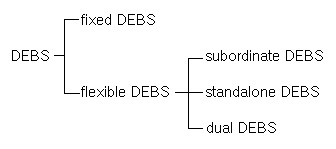
|

|

|
| About the author | Product Choice Download & Install Bulletin FAQ Q & A | Video - by the author |
| |
| |
|
|
Flexible double entry bookkeeping system "Best Accounting" not only provides balance sheet on [assets - liabilities = capital] and income statement based on [revenues - expenses = net income], but also provides cashbook based on [cash + deposits - cards = net cash] and InOut report based on [incomings - outgoings = net incoming]. It achieves accrual-basis accounting and cash-basis accounting simultaneously by a journalizing. "Best CashBook" only provides cashbook based on [cash + deposits - cards = net cash] and InOut report based on [incomings - outgoings = net incoming], but can be broadened till accepting a complete accrual-basis accounting. I, as the author and developer, would like to name the concepts embodied in our products "flexible DEBS"(DEBS : double entry bookkeeping system) in contrast to the exiting one that can be called fixed DEBS. While the fixed DEBS applies the double-entry concept in the fixed range, the flexible DEBS enables us to apply the double-entry concept in the range that we define as we want inside or outside of the fixed DEBS. 
First, the flexible DEBS can be divided into subordinate DEBS and standalone DEBS. Subordinate DEBS is a subset of the fixed DEBS like the cashbook in "Best Accounting" program. Standalone DEBS is an independent system like "Best CashBook" program. Meanwhile, dual DEBS can simultaneously achieve a subordinate DEBS and the fixed DEBS by a journalizing. "Best Accounting" program includes both of "subordinate DEBS" concept and "dual DEBS" concept. - Alfred S. H. Lee - |
